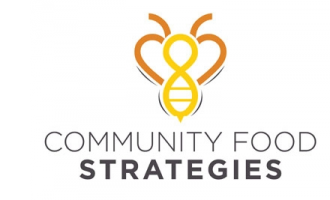It can be hard to see past the rainbow of tomatoes, peaches, corn, summer squash, peppers, eggplants, and other summer favorites weighing down tables at farmers tailgate markets right now. But farmers are also bringing some superstar herbs to markets that pair wonderfully with these vegetables and offer new flavors.
Basil is obviously a summer VIP, particularly alongside tomatoes and mozzarella. You can find this herb by the bunch, in big bags for making pesto, and even as a microgreen. Also look for varieties such as the deeply purple opal basil or narrow-leafed Thai basil, both of which are spicier with hints of anise and clove. Lunar Whale Herbs (ASAP Farmers Market) has African blue basil available, a cross between opal and camphor basil. This type is prized for medicinal properties and as a pollinator, but also makes delicious pesto.
Want to shake up your caprese salad? Try shiso, an herb in the mint family native to Asia, but now found across the world, including Appalachia. Its flavor is somewhere between cumin and basil with a bit of anise and cinnamon as well. It comes in both red or green varieties (or sometimes both). Try layering it with tomato and tofu slices, drizzled with a dressing of sesame oil, soy sauce, and sherry vinegar. Shiso also goes well with cucumbers, either in a salad or to flavor your pickles. Look for shiso from Lee’s One Fortune Farm (ASAP, Black Mountain, West Asheville, River Arts District, and East Asheville markets) or Creekside Farm (ASAP Farmers Market).
Calendula flowers, also known for medicinal uses, add a peppery and colorful zip to salads or soups. Cooked or steeped, the flowers add a warm orange-yellow color to your dishes, similar to saffron. Try folding the petals into scrambled eggs and quiche. Or add them to your favorite cornbread recipe by soaking the petals with the buttermilk before mixing the batter. Find calendula from Lunar Whale Herbs.
At farmers markets now you’ll also find blueberries, blackberries, nectarines, okra, green beans, new potatoes, carrots, salad greens, mushrooms and much more. Markets are also stocked with farm-fresh eggs, bread, cheese, pastries, drinks, and prepared foods. There are more than 100 farmers tailgate markets throughout the Appalachian Grown region. Find them, as well as farms and other local food businesses, in ASAP’s online Local Food Guide at appalachiangrown.org.
|
|
Community Food Strategies
Annual Meeting
|
 ASAP is one of seven organizations that make up Community Food Strategies, a collaborative partnership working to empower local food councils across North Carolina to help build an equitable, community driven food system that improves the quality of life for all people. The partnership works towards this vision by providing tools, trainings, funding, and networking opportunities to convene the 36 food councils across the state. ASAP is one of seven organizations that make up Community Food Strategies, a collaborative partnership working to empower local food councils across North Carolina to help build an equitable, community driven food system that improves the quality of life for all people. The partnership works towards this vision by providing tools, trainings, funding, and networking opportunities to convene the 36 food councils across the state.
This week Community Food Strategies hosted its virtual annual meeting of all seven partner organizations with the goal of deepening relationships and discussing ways to leverage our collective action to build a more just and equitable food system. ASAP's Community Food Strategies point person (otherwise known as Local Food Research Center program coordinator Amy Marion) brought development director Nora Scheff along to attend the convening.
|
|
|
ASAP's mission is to help local farms thrive, link farmers to markets and supporters, and build healthy communities through connections to local food.
|
|
|
|
|
ASAP's Farm Tour (coming Sept. 18-19) was featured in several publications, including The Smoky Mountain News, Transylvania Times, and Asheville Citizen Times. "If you've yet to experience the Farm Tour, it's an excellent way to be a tourist in your own region while sampling farm-fresh food, meeting local farmers and, sometimes, their animals," wrote Mackensy Lunsford for the Citizen Times.
One of the farms on the tour, North River Farms in Mills River, was also featured in the Citizen Times for its work to build safe habitats for the hellbender salamander. "We've always worked with soil and water and NRCS to put best management practices in place," said farmer Jason Davis said, speaking of himself and other farmers working with N.C. Cooperative Extension and other agricultural partners to make sure they're being good stewards of the land.
Civil Eats featured Henderson farming cooperative Tierra Fertil, including its partnership with ASAP's Appalachian Farms Feeding Families program. "In 2020, [Delia] Jovel also helped launch the Abundancia Food Bank in Hendersonville to provide fresh produce and culturally specific foods to local immigrant families experiencing food insecurity during the pandemic. The food bank went from serving 10 families in May to 90 by December. [...] In June the group secured a partnership through the nonprofit Appalachian Sustainable Agriculture Project (ASAP). The organization buys food from the farm to supply the Abundancia Food Bank."
|
|
|
|
|